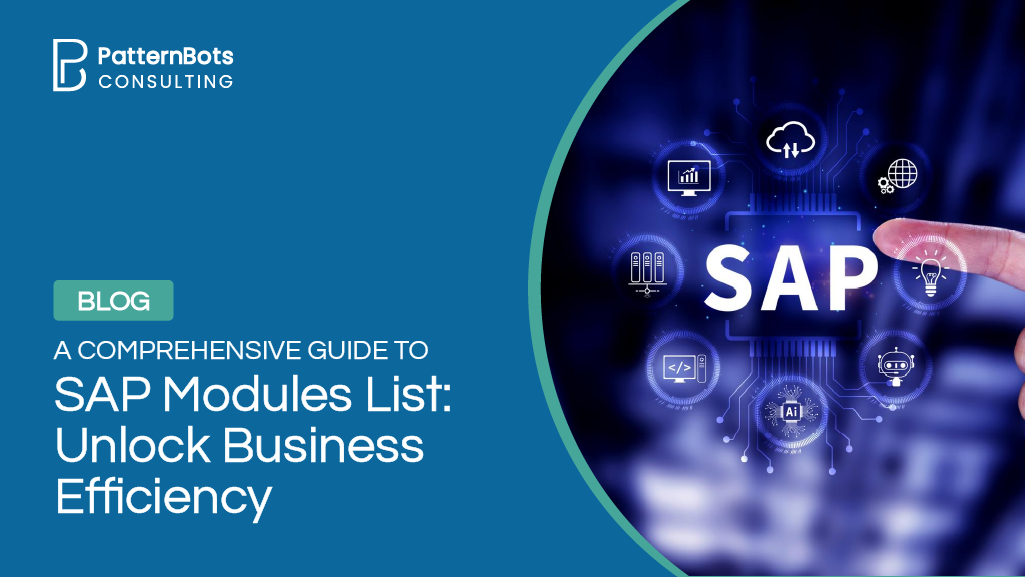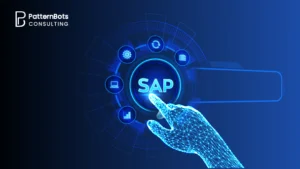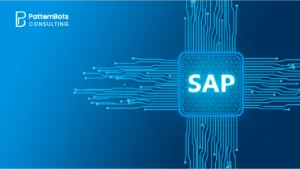
In today’s growing, tech-driven business world, firms, from global leaders to startups, are searching for alternatives to align operations, improve collaboration, and drive efficiencies.
SAP is the most widely used enterprise resource planning (ERP) software centralizing data and providing precise communication between different departments, thereby reducing efforts and improving performance.
SAP ERP modules are designed to assist businesses in processing transactions and reports for specific areas, such as human resources, finance, and sales. According to a Statista report, ERP market revenue across the globe has reached $52 billion, showing the increasing demand for integrated business solutions. In addition, cloud is the largest segment ranking with a revenue of over 13 billion U.S. dollars in 2023.
SAP ERP modules system was initially developed for inventory control; however, over the years, diverse software was developed for different processes in an enterprise for efficient information management and workflow. In today’s world, there are many leading market providers of ERP systems, directing businesses toward the path of innovation and success.
The SAP Module Lists Breakdown:
The SAP module list is bifurcated into two parts: functional and technical module lists.
SAP functional module lists are front-end interfaces for diverse business features utilized to perform specific tasks such as order processing, tracking inventory, and handling human resources. It is mainly used to process transactions and reports in a company’s business area.
On the other hand, SAP technical module lists are utilized on the backend of the SAP by administrators to manage the SAP environment, including updates, development, and technical support.
This blog will help you navigate between different SAP module lists with their core features.
Let’s explore SAP functional module lists:

Human Capital Management (SAP HCM)
The SAP HCM, also known as the human resource management (SAP HRM) module, progresses beyond just human resources personnel administration and payroll to treating workers as valuable assets.
Key features:
- Core HR and payroll
- Employee experience management
- Talent management through recruiting and appointing employee training
- HR analytics and workforce management
Production Planning (SAP PP)
SAP PP is one of the most important modules that deals with production planning processes such as capacity planning, material requirement planning, movement of raw materials and goods, cost management, etc.
Key Features:
- Bill of material
- Demand forecasting
- Shop floor control
- Production orders
- Sales and operations planning
Material Management (SAP MM)
The primary focus of the SAP MM module is on managing an organization’s procurement processes and the key logistics of the supply chain. This module is developed to align and optimize the management of materials, making sure that businesses can plan, procure, store, track, and consume goods.
Key Features:
- Inventory management
- Master data management
- Invoice verification
- Procurement processes
- Logistics execution
- Reporting and analytics
Financial Supply Chain Management (SAP FSCM)
SAP FSCM is created to make simple and improve the financial parts of a business supply chain. The intent of this module is to enhance efficiency in managing the financial component of the supply chain, reduce risk, and improve financial performance.
Key Features:
- Credit management
- Dispute management
- Collection management
- Treasury and risk management
- Cash and liquidity management
Sales and Distribution (SAP SD)
SAP SD module plays a key role in offering all processes of order to delivery. It efficiently integrates sales, shipping, and billing procedures and is connected with other SAP modules such as MM and FI.
Key Features:
- Sales order processing and monitoring
- Billing and invoice creation
- Inventory and warehouse management
- Pricing and rebate management
Project System (SAP PS)
It is a part of project and portfolio management solutions. Project systems help in handling projects throughout the complete project lifecycle, from the creation and preparation of detailed plans to project execution and completion.
Key features:
- Project progress analysis
- Project structure and time schedule
- Cost and revenue analysis
- Reporting
Financial Accounting and Controlling (SAP FICO)
SAP FICO is the most widely used SAP module. Companies majorly use this module to handle their financial data. It is a combination of two modules, FI and CO. FI is responsible for financial accounting and reporting, and CO is responsible for cost control and financial planning.
Key Features:
- Financial reporting
- Account receivable
- Account payable
- Asset management
- Cost element accounting
- Profitability analysis
- Integrations
Plant Maintenance (SAP PM)
SAP PM is a segment of the SAP central component (SAP CC) that assists companies in performing all important tasks by presenting precise maintenance of technical systems. It allows you to describe a sequence of maintenance tasks in the form of task lists.
Key Features:
- Maintenance processes
- Corrective maintenance
- Integrations with other SAP modules
- Asset management
- Regulatory Compliance
- Control and monitoring of maintenance
Quality Management (SAP QM)
SAP QM plays a vital role in supporting businesses in implementing and running quality control processes. It is designed to reduce defects, enable continuous process improvement, and establish sustained quality control programs.
Key Features:
- Quality inspection
- Quality notification
- Inspection planning and processing
- Statistical process control (SPC)
- Batch management
Investment Management (SAP IM)
SAP IM assists businesses in centralizing and optimizing the management of capital investments and expenditures within the organization. It helps in managing critical capital investment, expenditure, and other fixed assets in a single source of truth.
Key Features:
- Investment programs
- Appropriate requests
- Investment measures
- Information system
Let’s explore SAP technical modules lists:

SAP Basis
SAP Basis is a technical foundation of the SAP system. It helps businesses ensure that the SAP system is available, stable, and performing optimally. It forms a basis upon which the entire SAP landscape is constructed, delivering crucial services and tools for efficient system management.
Key Feature:
- System administration
- Transport management
- Performance tuning
- Backup and recovery
- Data integration
- Real-time data
- Resource management
SAP ABAP (Advanced business application programming)
SAP ABAP is a primary programming language through which developers create custom reports, interfaces, enhancements, and workflow within the SAP system. They work on the technical customization of SAP applications to fulfill specific business requirements.
Key Features:
- ABAP language
- Core data service views (CDS views)
- ABAP testing and analysis
- ABAP extensibility
- Debugging tools
SAP BI/BW (Business intelligence/business warehouse)
SAP BI/BW is a data warehousing system and reporting platform that assists businesses in making informed decisions. With SAP BW, you can easily integrate, transform, and consolidate relevant business information from productive SAP applications as well as external data sources.
Key Features:
- Data modeling
- Data integration
- Data visualization
- Predictive analytics
- Single point of entry
- Self-service reporting
- Quick implementation and high performance
SAP NetWeaver
It is a technology platform that allows organizations to integrate data, business processes, elements, and more from a variety of sources into a unified SAP environment.
Key Features
- SAP NetWeaver application server
- SAP gateway
- SAP identity management
- SAP master data management
- Process orchestration
What SAP modules are right for my organization?
Now that you have explored the top SAP modules lists and their key features, you might be feeling a bit overwhelmed. There are a lot of factors to consider when deciding what SAP modules you require, depending on your industry, firm size, and business environment.
To know which SAP modules best suit your requirements, you can consult our senior-level SAP consultant. Our team has extensive experience, and we can help you break down each SAP module to understand the benefits and values it can bring to your organization. Drop your query in a comment or connect with us to empower your business growth.